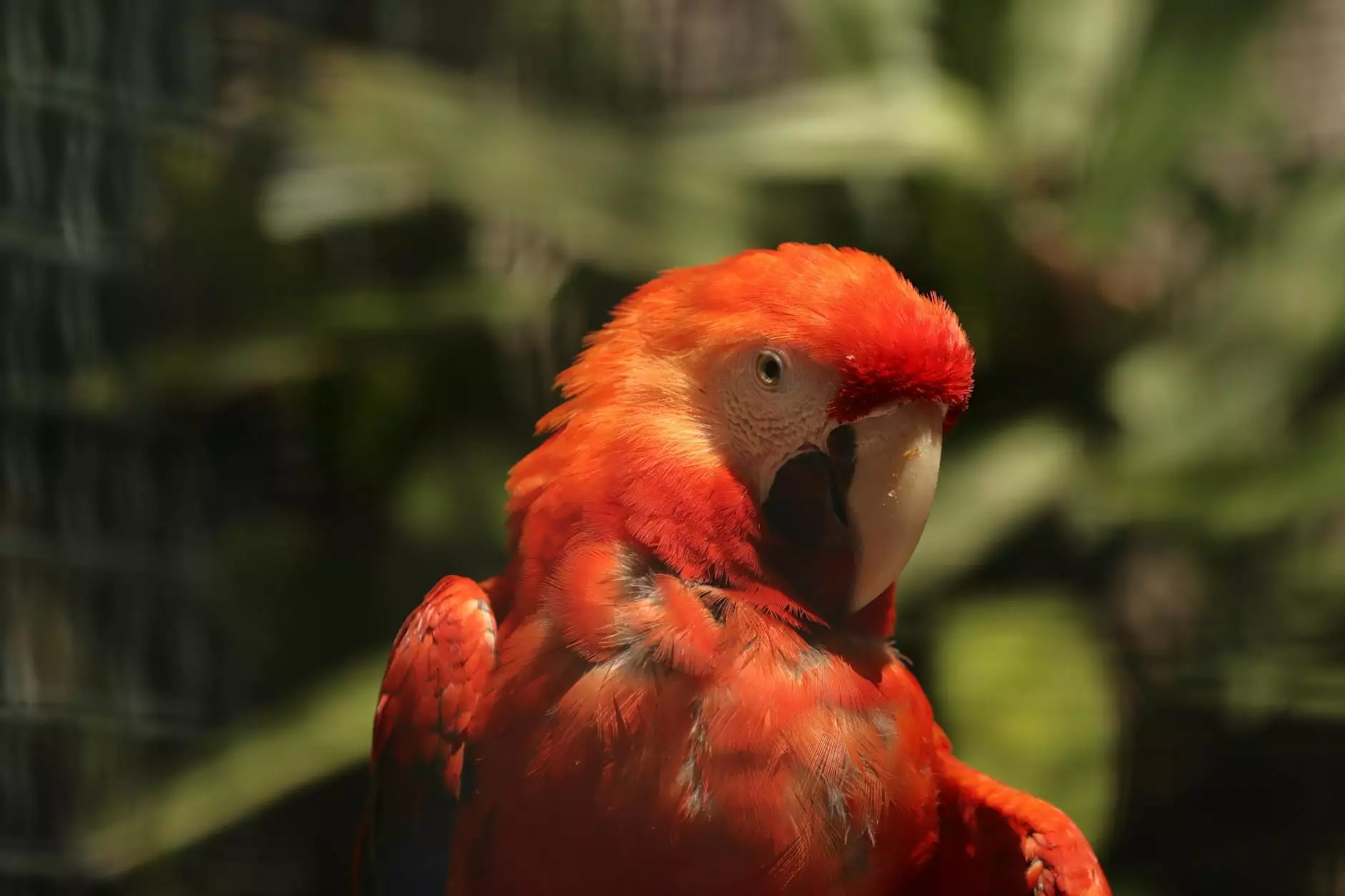All You Need to Know About Macaws Birds

Introduction to Macaws Birds
Macaws are among the most striking and vibrant birds in the world, capturing the hearts of many with their captivating colors and playful nature. These large, long-tailed parrots belong to the family Psittacidae and are known for their intelligence, sociability, and exceptional vocal abilities. Found primarily in Central and South America, they are often kept as pets due to their charm and engaging personalities.
The Fascinating Origins of Macaws Birds
The macaws birds are native to tropical rainforest regions, accounting for several species that vary dramatically in size and color. Their historical presence dates back thousands of years, with ancient records depicting them in various cultures. Macaws are often associated with freedom and beauty, symbolizing the rich biodiversity of their native habitats.
Varieties of Macaws
There are several species of macaws, each boasting its unique characteristics. Here are some of the most notable:
- Blue-and-yellow Macaw (Ara ararauna): Known for its vibrant blue wings and bright yellow underparts.
- Scarlet Macaw (Ara macao): Recognizable by its brilliant red plumage and long tail, often found in pairs.
- Green-winged Macaw (Ara chloropterus): Noted for its large size and green wings, combined with red and blue.
- Gold Macaw (Ara gloriosa): Characterized by its predominant gold color, often confused with other species.
- Hyacinth Macaw (Anodorhynchus hyacinthinus): The largest macaw with a stunning all-blue body, renowned for its rarity.
The Remarkable Traits of Macaws Birds
What sets macaws birds apart from other bird species? Apart from their visual appeal, they possess a range of traits that make them highly desirable pets:
- Intelligence: Macaws are exceptionally smart, capable of learning tricks and mimicking human speech. They can be trained to perform various tasks.
- Social Behavior: These birds are highly social creatures that thrive on interaction. They often bond closely with their owners.
- Lifespan: A well-cared-for macaw can live up to 50 years or more, making them a long-term commitment.
- Playfulness: Macaws are known for their playful nature. They require mental stimulation to keep them engaged and healthy.
Choosing the Right Macaw for You
When considering adding a macaw to your family, it’s essential to understand the differences between species and their individual care needs. Here’s a simple guide to choosing the right macaw:
- Assess Your Space: Ensure you have enough room for a large bird. Macaws require spacious cages and areas to play outside of their enclosures.
- Understand the Commitment: Owning a macaw is a long-term commitment. Prepare for the attention these birds require throughout their lives.
- Consider Your Lifestyle: Some species may be more suitable for families with young children, while others are better suited for experienced bird owners.
- Research Species: Each macaw species has distinct traits. For instance, hyacinth macaws may be more suited for dedicated owners due to their sensitive nature.
Caring for Your Macaws Birds
Providing proper care for macaws birds is vital for their health and happiness. Here are key components to consider:
Dietary Needs
A balanced diet is crucial. Macaws require a mix of:
- Pelleted Foods: Specialized pellets formulated for macaws provide the necessary vitamins and minerals.
- Fresh Fruits and Vegetables: Apples, bananas, carrots, and leafy greens should make up a large part of their diet.
- Nuts and Seeds: Offer nuts as treats, ensuring they are unsalted and fresh to maintain their health.
Environment and Housing
Creating a comfortable living environment is essential:
- Cage Size: Choose a spacious cage with horizontal bars to facilitate climbing.
- Safety: Ensure your home is bird-proofed by removing potential hazards such as toxic plants and small objects.
- Toys and Enrichment: Provide a variety of toys that promote physical activity and mental stimulation.
Socialization and Bonding
Macaws are very social creatures and require time with their owners. It’s vital to:
- Engage Daily: Spend time talking, playing, and interacting with your bird to strengthen your bond.
- Training: Take the time to train your macaw, integrating positive reinforcement techniques for successful learning.
- Monitor Behavior: Pay attention to mood changes or odd behavior that could indicate health issues or discomfort.
The Joys of Owning Macaws Birds
Having a macaw as a pet offers numerous emotional and psychological benefits:
- Companionship: Macaws are affectionate and develop strong bonds with their owners, providing delightful companionship.
- Vocal Interaction: Their ability to mimic sounds and words adds an interesting element to pet interaction.
- Unique Personalities: Each macaw has its character traits, making them a source of joy and entertainment.
Challenges and Considerations
Despite the joys, owning a macaw comes with challenges:
- Noise Levels: Macaws can be loud, which may not be suitable for all living environments.
- Time Commitment: These birds require significant time and interaction daily.
- Financial Responsibility: Be prepared for the costs of high-quality food, toys, and veterinary care.
Conclusion
In conclusion, macaws birds are magnificent creatures that can bring joy and companionship into a home. Understanding their needs and characteristics is essential for potential owners. With the right care, they can thrive and develop inseparable bonds with their humans. If you are ready for the commitment, a macaw can be a tremendous addition to your life!
Where to Find Macaws Birds for Sale
If you are interested in acquiring a macaw, consider visiting your local pet stores or reputable breeders. Websites such as rareexoticbirds.com.au provide valuable resources for potential macaw owners, offering insight into where to find healthy and well-cared-for birds.
Final Thoughts
Macaws are stunning birds with a rich history and captivating personalities. Whether you choose to add one to your family or simply wish to learn more about them, the world of macaws is both beautiful and rewarding. Always remember to prioritize their welfare and ensure they receive the love, interaction, and care they deserve.









